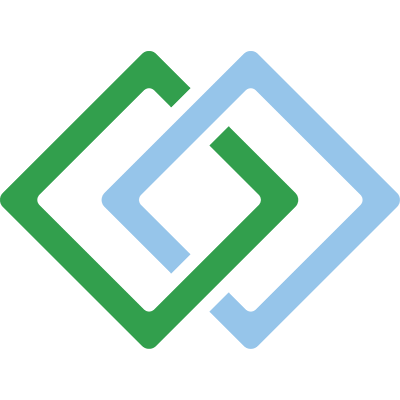
@ShahidNShah


Healthcare looks a lot different today than it did just a few years ago, doesn’t it? Technology has changed everything. Now, we can chat with doctors through our phones and even earn advanced degrees without setting foot in a classroom. Just look at programs like the Rockhurst University online FNP program that let busy nurses become family nurse practitioners from the comfort of their living rooms.
But nothing has shaken things up quite like artificial intelligence. AI is making waves in nursing, bringing amazing possibilities but also raising plenty of eyebrows. Ten years ago, if someone described how nurses would be working alongside smart algorithms, we’d have thought they were talking about a sci-fi movie!
So what’s really happening with AI in nursing today? How is it changing what nurses do every day? And what bumps in the road are we hitting as these new tools roll out? Let’s take a closer look at how AI is transforming nursing and what challenges we need to tackle to make the most of this technology.
AI-powered clinical decision support systems (CDSS) are perhaps the most visible application in today’s nursing environment. These systems analyze vast quantities of patient data to identify patterns that might escape even the most experienced human practitioners. For instance, AI algorithms can predict which patients are at the highest risk for conditions like sepsis or pressure ulcers before obvious symptoms appear, allowing nurses to intervene earlier.
The Mayo Clinic’s implementation of AI-driven sepsis detection algorithms has reduced mortality rates by identifying at-risk patients up to six hours earlier than traditional methods. This gives nurses a critical head start in initiating life-saving protocols.
Let’s face it — paperwork has always been the thorn in the side of nursing practice. AI is taking a bite out of this administrative burden by automating routine documentation tasks. Natural language processing (NLP) systems can transcribe patient encounters, extract relevant clinical information, and populate electronic health records automatically.
A 2023 study at Massachusetts General Hospital found that AI documentation assistance reduced nurses’ charting time by nearly 35%, freeing up more than an hour per 12-hour shift for direct patient care. Isn’t that what most nurses entered the profession for in the first place?
AI systems excel at analyzing individual patient data and comparing it against millions of similar cases to recommend highly personalized care plans. These tools can suggest interventions tailored to each patient’s unique health profile, genetic makeup, and social determinants of health.
For example, AI-powered platforms like Pieces Technologies analyze patients’ medical histories, socioeconomic factors, and even neighborhood data to help nurses develop discharge plans that minimize readmission risks by accounting for each patient’s specific circumstances.
Despite its promise, integrating AI into nursing practice isn’t all smooth sailing. Several significant challenges must be navigated before these technologies can reach their full potential.
Many advanced AI systems, particularly deep learning neural networks, operate as “black boxes” where even their developers cannot fully explain how they reach specific conclusions. This lack of transparency creates understandable hesitation among nursing professionals.
How can nurses trust recommendations from a system when they can’t see the reasoning behind them? This question becomes particularly acute in high-stakes clinical decisions where nurses bear professional and ethical responsibility for patient outcomes.
AI systems are only as good as the data they learn from, and healthcare data remains plagued by quality issues and implicit biases. Systems trained on datasets that underrepresent certain populations or contain historical care disparities risk perpetuating or even amplifying these inequities.
The well-documented bias in healthcare data disproportionately affects racial minorities, women, and socioeconomically disadvantaged patients. When AI systems learn from this biased data, they can inadvertently recommend suboptimal care for these already vulnerable populations.
Even the most brilliant AI solution will fail if it doesn’t mesh with nurses’ actual workflows. Too often, technologies developed without sufficient nursing input create additional steps rather than streamlining existing processes.
A nurse juggling multiple critical patients doesn’t have time to navigate a complex AI interface or manually input data that should be automatically captured. Technology that feels like one more burden in an already demanding shift quickly falls into disuse, regardless of its potential benefits.

These challenges might seem tough, but they’re definitely fixable. With some smart approaches, nurses can get the good stuff AI offers while avoiding the pitfalls.
Who knows what nurses need better than nurses themselves? It’s really that simple. When nurses are involved from day one in creating these AI tools, the technology actually helps with real problems instead of creating new headaches.
The American Nurses Association is already stepping up with its “AI Advisory Panel.” They’re making sure nurses have a seat at the table when tech companies develop new systems. This way, the tools fit into how nurses already work rather than forcing nurses to change everything they do.
Nurses shouldn’t have to blindly trust what an AI system tells them. Next-gen AI needs to show its work, just like we ask students to do in math class. When an AI suggests a treatment plan, it should be able to explain why in plain English.
New “explainable AI” is starting to shine a light on what was once a black box. These systems can now show exactly which factors led to their recommendations. This is a game-changer for nurses who need to understand why an AI is suggesting a particular course of action before they act on it.
Even the best technology fails if people don’t know how to use it. Nurses need solid training and ongoing support to work effectively with AI, not just a quick overview during a busy shift.
Many nursing schools are now teaching AI skills alongside traditional care techniques. And this learning can’t stop after graduation. Nurses need regular updates as the technology evolves, similar to how they stay current with new medications or treatments. Don’t we owe it to both nurses and patients to ensure everyone’s comfortable with these new digital tools?
In the next few years, we’ll see more nurses working alongside AI tools in their daily practice. But make no mistake, AI won’t replace nurses. Instead, these technologies will help nurses do what they already do, but better. They’ll handle the tedious stuff so nurses can spend more time doing what really matters – connecting with patients, making smart decisions, and providing compassionate care.
Nurses today have a real chance to shape how AI fits into their work, just like Florence Nightingale changed nursing with her focus on data and evidence. By speaking up about what they need and what concerns them, nurses can make sure AI helps, rather than just creating more headaches.
The human touch in nursing can’t be replaced by machines – that’s the bottom line. But with the right AI tools, nurses can provide even better care. Nursing has always rolled with the punches while staying focused on what counts: giving patients the best possible care. That won’t change, even as the technology does.

Chief Editor - Medigy & HealthcareGuys.
Are you considering becoming a social worker by completing an online LCSW programor other relevant qualifications? It’s definitely a noble calling to assist some of the most vulnerable and needy …
Posted May 8, 2025 Healthcare Wellness & Prevention
Connecting innovation decision makers to authoritative information, institutions, people and insights.
Medigy accurately delivers healthcare and technology information, news and insight from around the world.
Medigy surfaces the world's best crowdsourced health tech offerings with social interactions and peer reviews.
© 2026 Netspective Foundation, Inc. All Rights Reserved.
Built on Feb 20, 2026 at 3:27pm